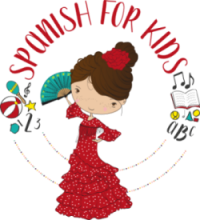More than a language
Children learn best!
They don’t need to put in any effort or neither do they have all the complexes we do as adults. Wouldn’t you want to be a child again?
When all you had in mind was to play and have fun. Nonetheless, playing is children’s work and just as important as our own work. Through playing they learn how to understand the world, who they are, and how they feel.
I don’t remember learning most skills or the three languages that I could speak right up until I started school. By the age of 6 I was trilingual. I suppose I just picked it up like everything else up until then. Without any teachers, desks or any formal lessons. I learned Spanish and Gallego (spoken in the region of Galicia, north-west, Spain) with my new Spanish friends as we played and had fun. I had to learn! I wasn’t missing out on all the fun around me, that was my MOTIVATION! I remember using all of my senses to make sense of what people were saying, decoding everything, using the context, facial expressions body language and emotions, all these were my tools to understand these new languages.

Throughout my experience of working with children, I have witnessed children’s amazing capacity to learn, and how their inquisitive little great minds just flourished at every opportunity. They are so smart and sensitive to everything, they never fail to surprise me on how quickly they can pick up new concepts and skills. With the right support, encouragement and appropriate level of challenge, they can achieve the unachievable. I have seen so many adults underestimate their child’s abilities to learn and understand. It is those perceptions that hold children back, and make each child believe they are incapable of achieving what they really can.
Any child can learn anything they want if they have fun, a motive, the right support and the means to do so. The most important thing is that the desire to learn is intrinsic, that it comes from the child itself. Therefore, children need to have fun, feel relaxed and excited about learning, asking questions and exploring further. They need adults that support their play, answer questions, offer them a variety of opportunities and the right elements, different spaces and environments and experiences to explore and be exposed to.
I guess what I am trying to say is that, through my own personal experience and as childhood professional, children need opportunities, and parents need to believe in their children, offer them the opportunity to learn something from a young age, that they can carry with them throughout their life, as they develop and grow, which in turn will also provide them with extra benefits and opportunities in a world that is becoming more and more competitive. Basic skills are no longer enough, everyone will have to have a few additional skills under their sleeves.
It is never too soon; language development of a child starts during the second trimester of pregnancy. Science has revealed that Learning an additional language from a young age can create new neuro-pathways in the brain and make this increase in size, more so, before they reach the age of three as this is the optimum time of growth and brain development. Young learner’s brains are much more plastic and adaptable. In terms of learning another language, young babies have a great ability to discriminate sounds a reproduce those sounds later. As adults, we find it more difficult to hear and reproduce sounds that we have never heard or used before. Bilingual babies can distinguish between languages from as young as 20 months old.
Various experiments have revealed that teaching an additional language through Immersion, is very similar to how we learn our own language and their brains processes language like native speakers. Children don’t need extra processing time, trust me, i’m the living proof of that, it’s a myth that they get confused, they are naturally able to switch and activate vocabulary of the language that is used in any particular setting, just like I did as a child.
The benefits of learning another language at a young age are endless and the best part of it all is that these benefits boost the development and progression to other skills and abilities such as confidence and self-esteem, memory recall, creativity, imagination and problem-solving. Bilingual children have outperformed monolinguals on conflict tasks, better at understanding rules, guidance and directions. They are a great at empathising, understanding other people as multilingual exposure can promote effective communication by enhancing perspective taking. Once they pick up another language they can easily learn grammatical structures to other languages. This improves their own language skills, and every language learned afterwards becomes easier to learn than the one before. That explains how every language I learned after Spanish was so easy for me.
Learning as a child is much easier and better, as I said before it is effortless to them. I Could not see myself trying to learn another language now as an adult, it would require too much time, concentration and all my logical and natural instincts that have been embedded in my brain would throughout the motivation to even try. As adults we use too much logic, whereas children just absorb and take in everything like sponges, that’s what they are designed to do.
You can still learn a language as an adult and enjoy so many benefits, especially if you have the motivation, desire or need to do so. I would encourage anyone to do it, it is very possible. I personally feel I have enough languages in my head at once, as I do use them all on a daily basis and I love how it gives me access to so much more in life and in the world. It feels like an extra bank card with stashed savings that never run out in case I need them. As mentioned on my previous blog “Why Learn Spanish” I have been so lucky and fortunate in so many ways, in my own personal life and professional life. Maybe one day I will tell you more about it, but I will probably have to write a book, the list is endless.
However, learning another language has more to it than just learning it. There are many contributing and influential factors that will affect the ability to do so, such as, motivation, this plays a great part in it, children or adults need the motive to learn and communicate. Motivation comes from desire, need, enjoyment, pleasure, fun and even reward. Also, who is teaching the language, do they know how to teach or can they just speak or say some words in another language? Do they use the correct grammar and pronunciation? This is important because it easy to learn but after a while of bad habits it is harder to unlearn. This is why I believe you can never go wrong with native teachers. Non-native teachers can be really good too, but they are harder to spot, especially if you don’t understand what they are saying. Last but not least of the influential factor is exposure and continuity. Children need to be exposed to the language they are learning and they need to be able to listen to it and use it frequently.
If you don’t use it in a while, you CAN lose it.
Thank you for reading and I hope you have enjoyed this blog. Stay close if you want to read more. Hast Pronto amigos!

